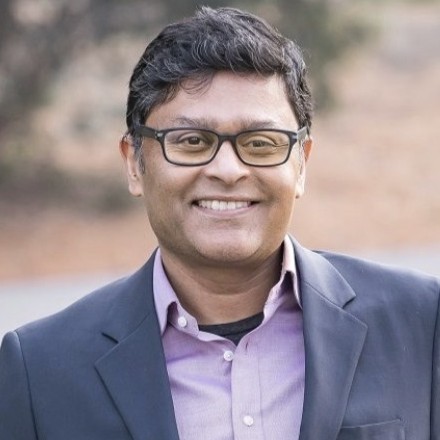S6 Ep. 4 — Upal Basu: General Partner at Ngp Capital
- 0.5
- 1
- 1.25
- 1.5
- 1.75
- 2
Tim Schigel: Welcome to Fast Frontiers. I am your host Tim Schigel, managing partner of Refinery Ventures. In today's episode, we're talking about Upal Basu. Upal has worked in the mobile and software technology industry for over 20 years and is currently the technology investor and global software entrepreneur for NGP Capital. In this episode, we're going to dive into what Upal has learned as an investor, as well as an operator, and then talk about NGP's view of the world of SaaS, software and edge computing. Please enjoy my conversation with Upal Basu. Upal, welcome to Fast Frontiers. It's so good to have you on here.
Upal Basu: Happy to be hear, Tim, delighted to reconnect.
Tim Schigel: So that our listeners know how we connected, it was through our mutual friend and colleague John Gardner, originally from Cincinnati and Miami University grad who's been with NGP and that effort for quite a long time. We stay in touch and he's always helpful to us here in the region. We talk about deal flow and whatnot and he was able to connect us, which I'm very grateful for.
Upal Basu: Indeed. Indeed. And your friend John is the founder of NGP Capital. I'll be happy to tell you more about our fund and my own background.
Tim Schigel: That would be great. Let's start there.
Upal Basu: Just a few words on NGP Capital. NGP Capital is an early growth stage fund, founded in 2005 by John Gardner and one of my colleagues, Paul. We manage a little over a billion and a half of capital. The genesis of our organization is, the capital came from our limited partner, Nokia. When our fund was founded, the world was siloed into a pure financial VC focused set of funds and highly captive balance sheet investors in the technology world. We felt there was a better way, because one of the most important things is to attract the right sort of talent to make investments and we felt that the financially focused, incentivized individuals tend to perform the best, so we wanted to have a team which was financially focused, but yet we wanted to get the benefit of strategic insights. And we felt being aligned with a large corporation would give us proprietary insights on needs, demands, trends which are not readily available to traditional VCs. We felt a combination like that would make us a unique fund, which it did. Since then, many other funds have emerged which have a similar approach, including Google Ventures, Sapphire Ventures, these are all independent funds, but backed by a single limited partner. We'd like to think we were one of the first to get this off the ground in 2005. Since then, we have built a global platform with offices here in Palo Alto, where I'm based out of and which I run, but also offices in Switzerland, in Helsinki, in Berlin, and also in Shanghai. The other thing which makes us somewhat unique is, unlike a franchisee type devolved office structure, we actually make decisions together, we look at deals together, we like to see patterns emerging from different parts of the world and see how we can take advantage of those trend lines from a global perspective. My own background is I'm very global myself. I was born in England, brought up in India, did my grad studies in the United States and have lived in three separate continents for significant periods of my life and time. And so very much a kid who grew up during the seventies, eighties and nineties through globalization. So I look at world very holistically and from a very international perspective. I have also done many things. I'm an engineer by training. I was a management consultant at McKinsey. I was an entrepreneur, founded a company, quite a significant one in device management and then became an investor. So I've also tried many different things. I enjoy the fact I can try and explore different ideas. Of all the careers I've had, I would say working with entrepreneurs perhaps gives me the most satisfaction. I feel I have an indirect skin in the game in the future of our planet and I'd like to see how I can make a difference. I'm very much an active investor and I like to work with entrepreneurs. Having been an entrepreneur myself, I like to think I may be more helpful than just a traditional investor. I guess that would be the best reference for that point. So on that basis, I've been doing this for 14 years and love my job, feel very privileged to be doing this for a living,
Tim Schigel: Have to agree with you, biased, but being a former founder operator is helpful and I think a lot of entrepreneurs appreciate that. Your background, you have a fantastic background, so I'm sure they love to tap into your wisdom. Actually, what would be a couple things that you learned as an operator that you've brought to investing that you think are unique, given that you've had both perspectives?
Upal Basu: I would say, the people judgment question. I would say it's really ultimately boils down to people. Every business, including the business I founded and most of the companies I back, I back twenty companies directly, they've had to pivot at some point, pivot from an idea market, product. And people who are extremely driven and focused, yet flexible and are humble enough to recognize when things are not going their way tend to do best as entrepreneurs. I think what I learned was that often board members and traditional VCs often, once they invest in a company, actually become quite impatient for revenue growth and key metrics so that they can... because often these partners are reporting to other partners in the organization, they're trying to build their own franchise and reputation and they shift from... they surprisingly become very quarterly focused. And what I learned about good companies is good companies are often not built in quarters, often take a decade to really fully bear fruit. And it's very important, especially in the first two, three years, to be very open minded about that relationship you're building with the entrepreneur. It's both the entrepreneur instinct on what is the right opportunity and market evolves over time, but the board members also need to evolve over time. And I would say, when that balance is right, great things can happen, but once there's dysfunction on one side of that conversation, things can often not go very well.
Tim Schigel: That's such a good point. Having that empathy is huge. What's the profile of the investments that NGP looks for?
Upal Basu: We call ourselves early growth fund, which means not to put any alphabets, C, A or B in our investing strategy, but more around what we call product market fit, which means we generally come in when the company has a few customers and the product has gone beyond beta stage two a GA product. What we are really looking for is some evidence that there's demand for the product, there's a demand, there's a market for it. The market doesn't have to be large yet, the market could be very much a fledgling market, but some signals of consumption, which we can then take and build a much more international story around. Generally what that usually means is the company has raised one institution round of capital before we come in. It could be a seed stage fund or it could be a traditional Sand Hill firm. When we come in, we like to lead these rounds. Obviously last two, three years have been a little crazy when valuations reached us, the stage where it became very hard for us to lead rounds. But generally we have had a bias towards leading rounds. On average, most of our companies we back are valued below 100, but we don't have a red line on that. We have backed companies at significant multiples of that. But generally what we are looking for obviously is a future over the next five years, which is going to be significantly bigger than where we're coming in.
Tim Schigel: And do you have a minimum or average check size?
Upal Basu: On average it's been around 10. It's creeping up, so it's moving closer to 15, but we have also done$ 5 million checks when the round was oversubscribed and we still wanted to be in the business.
Tim Schigel: And how about industry sectors?
Upal Basu: We are not industry sector focused as much as I would say thematic sector focused, so industry as in not vertical industry focused, although there are some vertical industries we do find attractive. I would say the thematic themes we are especially attracted to are, we call it broadly the edge computing space, the cybersecurity space, and I would say AI driven transformation of the enterprise. I would say those are three broad buckets. The AI driven transformation, cyber security, and I would say edge compute are areas where we are spending significant time and energy. And some of this is also influenced by our LPs interest, which is, since Nokia is a world leader in 5G and networking, they are looking for ecosystem and companies which are likely to benefit from a shift to 5G. And so we think some of these teams are well aligned with that.
Tim Schigel: And if edge is part of the focus, to what degree will you invest in companies that have hardware component?
Upal Basu: We have invested in companies with cameras and chips. Just to give you some example, we invested in a company which was acquired by AMS called Heptagon, which was a time of flight chip, which is now built into pretty much every Apple device. We spotted that company very early in Switzerland. We are investors in a company called RetailNext, which has built multidimensional cameras which sit on top of retail stores and can monitor traffic and convert all that into data. We are actively looking at a number of industrial computer vision use cases, companies which are trying to help automate and improve quality performance inside industrial environments. So we will look at hardware devices, but with a very use case focus. We have historically not backed chips for chip's sake, but more around a demand cycle, so more like a system approach.
Tim Schigel: Got it. I know for some entrepreneurs that might be listening, they have a hardware component, it's sometimes hard for them to find hardware investors. Everybody wants SaaS.
Upal Basu: Yes. Having said that, we generally like companies which have software and hardware together. I'll give you one very simple example is a company called Whistle, which was a dog collar, a dog tracking collar which Mars bought and has now scaled it up massively. This was a company which actually had a GPS chip built into it, but what made it special was the software which allowed owners to monitor, track the behavior of their pets. We often see the commoditization of the chip layer happen much faster, but companies which can build that software stack on top tend to have more sustainability as businesses.
Tim Schigel: How do you define, can you just give us some definition about what you mean by edge computing and what are some of the trends in that space?
Upal Basu: I would say we have a system definition of edge. So we think of Edge Cloud as a system construct three things, which is a vertical solution which sits at the edge of the network, a central cloud processing, which does a lot of the processing, and horizontal enabling technologies which provide much of the platform capabilities to deliver the value. Now, in the first generation of edge computing, companies were trying to provide all of these bespoke as IoT platforms. Predicts is an example of a G back company, and these were extremely expensive technologies and required mastery of everything from hardware, to middleware, to cloud computing, to edge. What we see is a separation and specialization. As cloud computing has become more sophisticated and API based companies have emerged, you can now build a hardware ended device, which is extremely plug and play. To give you some examples, companies like Baccara for building automation or Samsara which went public, these are great example of companies which actually initially started trying to build the whole thing themselves but then decided to focus on building the end device and leveraging a lot of public resources and web skill technologies on the back end. We have recently backed a company called SVT Robotics, which does something similar. It provides an operating system for robots, runs on top of different and disparate robotic systems, but again, pulls in resources and capabilities of third party technologies and software. So we actually see edge becoming increasingly an extension of web scalers and cloud companies as they move in more closer to the edge and provide a lot of the developer tools and enabling technologies, entrepreneurs can then piggyback on all that capability and build the last mile. We believe that's where most of the value will be captured. We also think the traditional cloud computing and cloud- centric companies are not particularly good at understanding the needs of the end user, whether it's a vertical industry, plan logistics or whether it's a healthcare company. And that's where the entrepreneur can be highly innovative and build solutions. But it's very important that whatever they build abstracts a lot of deployment system integration complexity away from the procurement people and the buyer and the user. Because one of the things we've learned about edge computing, which we believe is a continuum of the IoT conversation, is that the moment you put system integration and customization into the mix, you slow things down and you move into what's called pilot purgatory, it's a lifetime of trials, but you don't get anywhere. That's why when entrepreneurs think of edge, we say build a complete solution, leverage third party solutions, but abstract all that away from the end user.
Tim Schigel: What about on the side of AI, the AI transformation? What are some of the things you're seeing there, some of the themes that you're focused on?
Upal Basu: Great topic. I know if your folks have been following some of the amazing innovations and foundational AI, GPT-3, DALL- E, the amount of parameters, some of these... How intelligent and not yet sentient AI has become. Again, what we are seeing is the best companies are able to take advantage of all the great work the Googles, the Amazons, the Microsoft and open AIs have done, and build a layer of insight and intelligence which only they can own. I'll give an example is a company called Observe, Observe. AI, which is a company which is in the contact center automation space. What they do is they record every conversation between the caller and the agent and they help the agent, not only on quality training purposes, but also respond in real time to calls. Agitated callers, people usually only call when there's some tension in that conversation, understanding the tension, the emotion of the caller, and responding appropriately all in real time. Again leveraging a lot of amazing work which has happened in these foundationally AI technologies. Similarly, I'm on the board of a company called SecurityScorecard, which is trying to predict how likely a company's going to get hacked in the next 12 months by not looking at internal signals, but external signals on what a hacker might see, how a hacker might categorize that company across 20 dimensions. And then looking for patterns to see in the past have other companies been breached with similar vulnerabilities, and then telling the company you have these 10 areas where you need to do better and again, real time, constantly getting updated for patterns. So all these predictive patterns again, building on a lot of the work which has been done in many of these foundationally AI technologies. We love the great work which is being done by these massive web scalers, but we think entrepreneurs have this unique insight and advantage to really understand the end user and take advantage of many of these models.
Tim Schigel: It also sounds like from those examples, AI is using to make people better. It's improving human performance, it's not replacing it. Would you say that's true?
Upal Basu: Yeah. We've always had this view for a very long time that AI is an augmenter of human capabilities and takes the mundane away and allows us to use our brains in a more creative fashion. I recently heard something about the word autopilot and co- pilot, where autopilot technologies try to automate all the mundane work away and co- pilot tries to make the person smarter. Some of the most clerical work, the DMV type work, can be automated by machines and I think those people could be released to work on more higher value added tasks. It's a longer conversation. All industrial revolutions from agriculture on have actually created net more jobs. And so as people move away from spreadsheet work and data entry work to more AI driven work, I do believe we'll create more jobs. People always fear the existential loss of jobs from an existing business, but when you look at what Excel did to handwritten financial models, it gave it 10x more opportunities for spreadsheet workers. We think these spreadsheet workers are probably going to move to the next level through AI and will create more jobs.
Tim Schigel: That's good. I hadn't thought about it that way. That's a great point. I love the autopilot versus co- pilot. So you're letting people do higher level work, not just automating tasks, which often can kind of dumb folks down, because they don't know what's going on.
Upal Basu: Exactly.
Tim Schigel: Co- pilot makes you better, and maybe helps drive more insight and learning. Switching gears a little bit, in terms of Fast Frontiers, what trends are you seeing in terms of innovation and investing that are happening outside of Silicon Valley?
Upal Basu: Great question. We are by design, designed outside Silicon Valley in the sense that when we started our fund in 2005, we opened an office in China and India and Europe simultaneously. So we never ever invested more than 25% of our capital in Silicon Valley. It's very interesting that now the rest of the world has realized there's innovation available everywhere around the world and of certainly AWS and other cloud computing companies has made it much easier to start a company anywhere in the world. When I was an entrepreneur I had to spend a million dollars to just get a rack and a T1 line, which most people may not know what a T1 line is, but a dedicated wire from AT& T cost us$ 40,000 a month,$40, 000 in 2000. It's only 20 years back. I had to spend 40,000 a month just on a telecom line from AT& T, so you can see why there was such a barrier to scaling internationally and how those barriers have been mitigated through internet and cloud computing. We absolutely believe in that mission and opportunity, talent is global. Elon Musk came from South Africa, so we actually see it that way. Now, the other trend we are seeing is people are adapting and experimenting much more globally, so they're not taking Silicon Valley models, they're taking their own approaches. So Silicon Valley, I think as a saying, has become more of a mindset than a location. We see Silicon Valley mindset probably on steroids in places like Shanghai and Bangalore, where people are constantly experimenting with their local opportunities. So education is hyper local in many societies. Healthcare is hyper local in many societies, and the way you solve those problems is taking a local approach, not a, necessarily, a Silicon Valley approach. So some of the trends we see is again, we see AI starting to percolate everywhere around the world, people taking advantage of these opportunities. We also see in the next five to 10 years a big shift in this sort of what we call the convergence play, this separation of physical world and digital world. And I know people have been talking about the consumer metaverse, but I think that the thing to really focus on is really the industrial and the business metaverse. How can healthcare outcomes get improved, industrial outcomes be improved. If you can sensorize our bodies, we could have a realtime relationship with our doctors, which is actually a convergence of my body and a digital replica for my body, which my doctor can see. So we actually think that kind of a twinning, more in the business world, is actually going to create some significant value and we are again seeing a lot of entrepreneurship happening in that direction globally.
Tim Schigel: We've seen a lot happening or continue to happen in this digital twin environment in business for training etcetera. And a lot of that seems to be a lot of consulting, systems integration, that sort of thing. So curious to see if you've seen any or hear if you've seen any other kind of products or infrastructure that might be required for that?
Upal Basu: We're starting to see this in education, in the education university setting, because they were forced to adopt to a world of hybrid learning. Again, a lot of it is custom built right now, but we do believe many of those features will get productized over time. And again, there's a big entrepreneurial opportunity if you can productize some of the system integration type work. There could be some real value creation opportunity.
Tim Schigel: Great. Today we're recording this, I'm not sure when this is going to be published, but we're recording this near the end of June. Let's just spend a couple minutes talking about the current market conditions. You've seen these kind of cycles before, there are a lot of similarities, but there are some differences as well. What's the best advice you have for both entrepreneurs and investors, particularly early stage companies, let's say up through series B on how to navigate the next year?
Upal Basu: I have one piece of advice for existing entrepreneurs and probably a different one for new entrepreneurs. For existing entrepreneurs, if you are a seed stage entrepreneur, I think stretching your capital for three years doesn't actually make a lot of sense because you are going to be valued on your next milestone. So if you're a seed entrepreneur starting to build your first prototype, you should continue on that journey and not slow down that journey, because the milestone on which you'll be judged at the next round is what you have delivered. And time is not a friend when you don't deliver that. But if you're a later stage investee and entrepreneur, I would absolutely look at the sales and marketing burn rate and try to ask the question, can I stretch my capital for another two to three years? Because the market certainly overvalued the series B and C stages over the last few years. Entrepreneurs need to grow into those valuations in two to three years. The good news is that it all ends, always ends positively. It just takes longer than you expect. The world is constantly innovating. I'm optimistic about the future. I'm just not very good at predicting timing of when the capital markets start releasing capital again. It could be 12 months, it could be three or four years. I just tell all entrepreneurs in our portfolio, make your cash last for two, three years. But if you're a seed investor, hit those milestones, because the de minimis capital you raise needs to deliver some value. And there is a lot of dry gun powder there for good companies still. For a new entrepreneur, I would just say, at the seed stage, in my opinion at least, the valuations have not changed that much and there's a lot of wealthy, high net worth individuals and seed funds which are looking for opportunities. If anything more demand is flowing back towards the early stage of the cycle, which is really where the true venture model really lies. In my opinion, if you're a great entrepreneur and if you are dissatisfied with your current job, I certainly think this is a great time to start a company. The other cycle we have seen since, at least the cycles I've experienced in 1992, is the best companies with the best return profiles were started between 2002 and 2007 and then 2010 to 13. Those vintages have some of the best return profiles, both for the entrepreneur as well as for investors. The reason being, that all the follow on rounds tend to be up rounds when you start a company at this stage. Keep in mind that it's not... If you're starting at the bottom of the cycle, the next seven years are actually more likely to be on your side than against you. My pattern recognition is, great time to start a company. Capital is still plentiful, certainly at the seed and series A stage. If I'm a B and C entrepreneur, I have to be much more careful.
Tim Schigel: Absolutely. And the question I keep getting, and I'm going to ask you, but I think I know the answer, has this environment changed your investing pace in any way?
Upal Basu: Interesting point, fortunately for us, we closed our fifth fund, which is a 400 million fund, in January this year. So we start with a lot of dry gun powder. We are actually being quite opportunistic. We are finding that many of the deals which were done in 2021 at overvalued prices, those entrepreneurs are coming back with, at this time in June, almost all of them are willing to do flat rounds on 2020, 21 prices. We expect those flat rounds are more likely to become repriced in the next six to nine months as more and more companies, 1500 unicorns right now we understand, and probably 10x more series A and B stage companies, need to raise follow on financing in the next 12 to 18 months. So the market is in our favor, but we are being selective. We don't look at only valuation as our metric. We look at the quality of the entrepreneur and the market opportunity, and we are finding that this is actually a great time, if you have capital, to start conversations with the best entrepreneurs. We may not invest right now, we may invest nine months from now. But for a while, the relationship between investors and entrepreneurs had become very transactional, last two, three years, literally, the relationship just became a term sheet and valuation conversation. What we like about this time is that entrepreneurs and VCs are actually having real conversations about value creation together and it's not about just pricing. I think that's a healthier state to be in. We feel fortunate we have the capital, but we want to work with the best entrepreneurs now and spend time getting to know them.
Tim Schigel: That's terrific. Well, I hope all our listeners and entrepreneurs out there heard that message, get in contact with you and see if there's a possibility to collaborate. Upal, thank you so much for your time and sharing your perspective with us.
Upal Basu: Well, thank you Tim. Again, a pleasure and love the work you're doing in the middle of the country, bringing innovation and capital to the best people up there.
Tim Schigel: You got it. Thanks. Join us next week when we bring you my conversation with Tim Kight, founder and CEO of Focus 3, a firm that teaches elite training systems to develop leaders, strengthen culture, and empower people. Thanks for listening to Fast Frontiers. If you like our show and want to know more, check out our website, fastfrontiers. com. If you've enjoyed this episode, please share it with others and leave us a review on your favorite podcast platform. The Fast Frontiers podcast is brought to you by Refinery Ventures. Our producer is Abby Fittes, Audio Engineering by Astronomic Audio, and our podcast platform is Casted.
DESCRIPTION
Today on Fast Frontiers, Upal Basu of ngp capital stops by to talk to host Tim Schigel about what Upal has learned as an investor, and about current events in SaaS, software, and edge computing. Upal is the a general partner at ngp capital, and in this role manages more than a billion and a half dollars in assets. He'll also talk today about lessons learned throughout his career as an investor.
Today's Host

Tim Schigel
Today's Guests








